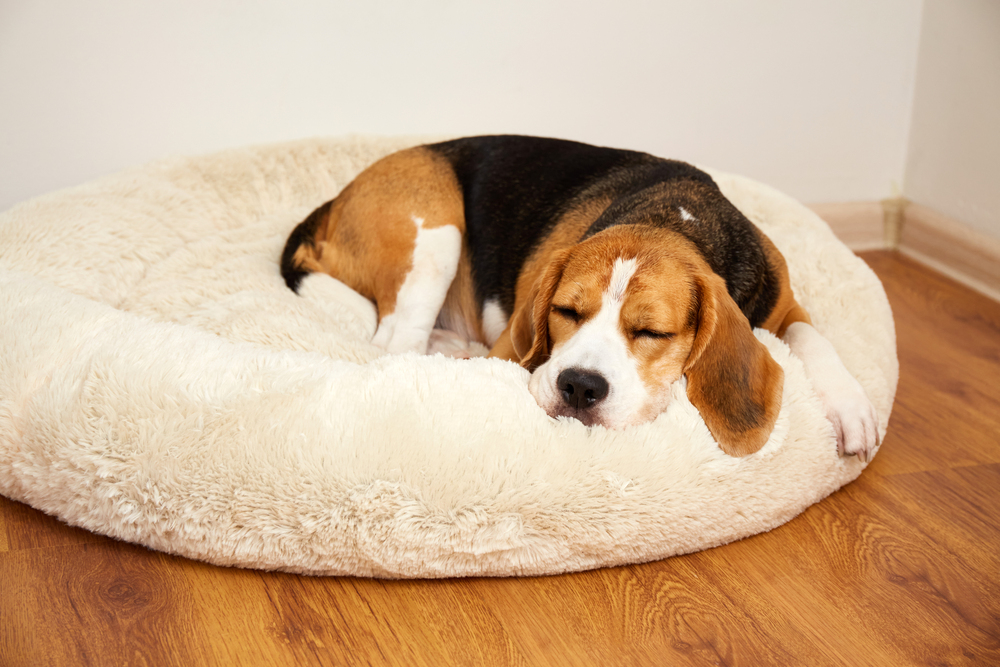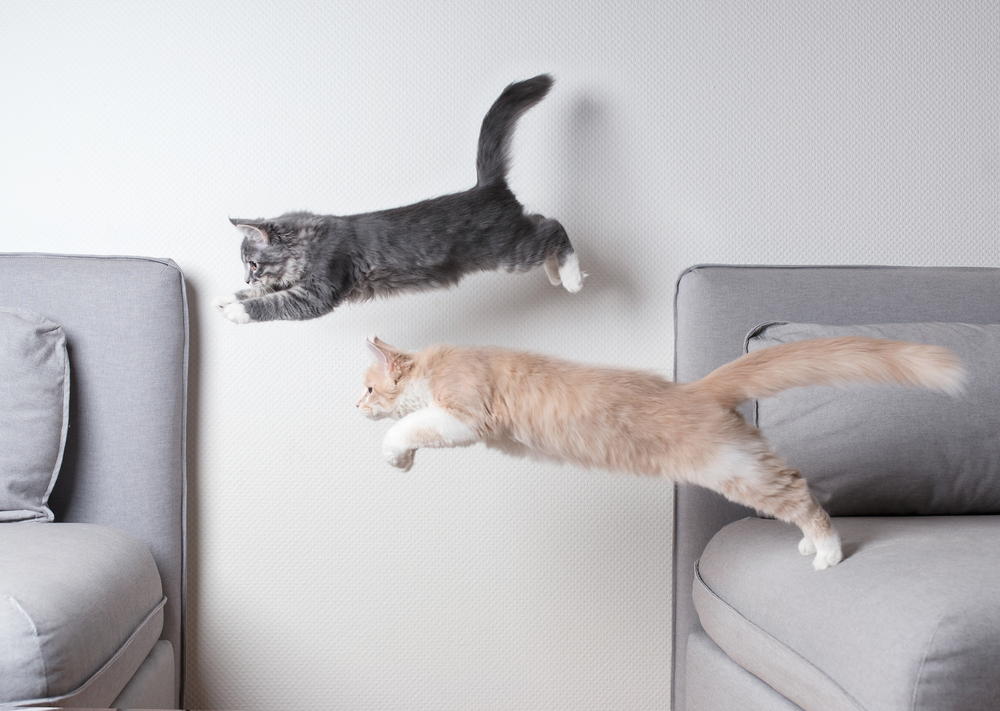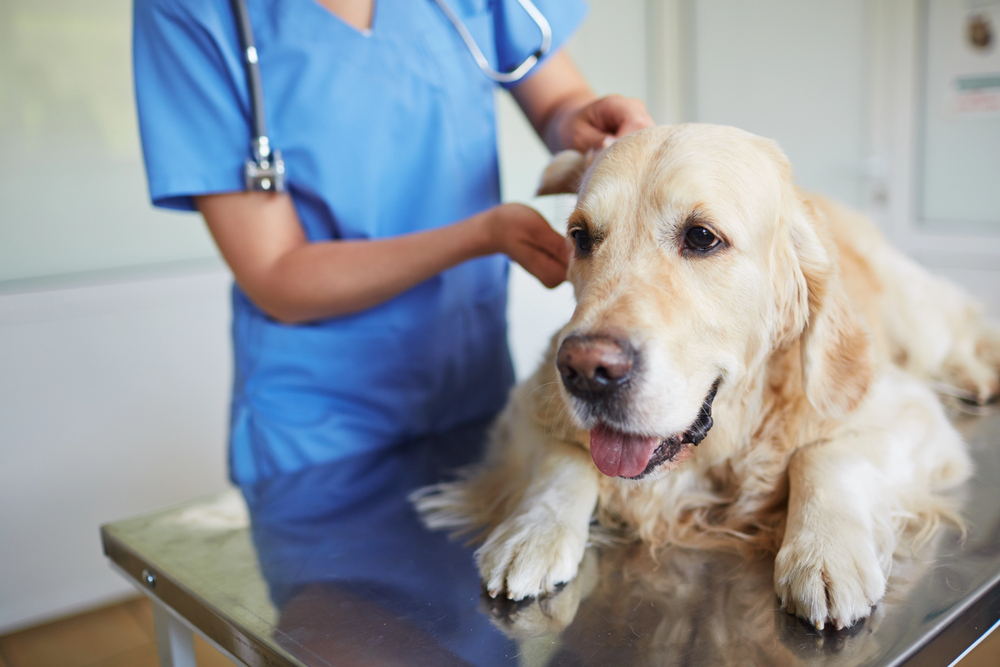
Check out these common reasons for excessive sleep in pets
Read Time: 5 minutes
Dogs and cats can have radically different sleeping habits from humans. For starters, they sleep a lot more than we do and at different times. This means that it can be hard to tell what’s normal for your pet and what is a cause for concern. Keep reading to learn more about why your pet is sleeping so much and whether you should consult your vet about it.

Normal Sleep Cycles for Pets
One of the most common reasons your pet is sleeping a lot is simply because that’s what they naturally do! Dogs and cats have different sleep cycles than humans. On average, adult dogs sleep 12-14 hours a day, while cats can sleep up to 16 hours, sometimes even more. Puppies, kittens, and senior pets may sleep even longer as their bodies require more rest to grow or recuperate. As long as your pet is active and alert when awake, there’s no need for concern.
Age-Related Sleep Cycles
Just like humans, pets’ sleep needs change as they age. Puppies and kittens often sleep up to 20 hours a day as they grow rapidly. On the other hand, senior pets, especially dogs, may also sleep more due to slowing metabolisms and lower energy levels. Older pets may tire quickly after exercise and require more rest to recover. If your pet is aging and gradually sleeping more, this is usually normal.
Highly Active Pets
Pets who are highly active need more sleep to recharge. Whether your dog just had a long walk or your cat engaged in a serious play session, increased physical activity often leads to longer naps. On the flip side, pets that don’t get enough exercise may also sleep excessively out of boredom. Ensuring your pet has plenty of mental and physical stimulation during their waking hours can help balance their sleep patterns.

Want To Make Sure Your Pet Is Healthy for Their Age?
Contact us now with any questions or to make an appointment. Our team at Windermere Veterinary Services is here to help!
Other Reasons Pets May Sleep a Lot
There are other factors that can impact how much your pet may sleep as well. Some of these aren’t cause for concern, but others may be a sign that you should talk to your vet.
Weather and Environment
Changes in weather and the environment can also impact how much your pet sleeps. Much like humans, pets may feel more lethargic during colder months or on rainy days. In hotter weather, pets tend to conserve energy by resting more. Additionally, if your home environment is calm and quiet, your pet may feel more comfortable sleeping throughout the day.
Stress or Anxiety
Sometimes, excessive sleep can be a sign of stress or anxiety in pets. Changes in routine, moving to a new home, or the introduction of a new pet can lead to your furry friend feeling overwhelmed. In response, they may sleep more as a way of coping. Keep an eye out for other signs of stress, such as pacing, excessive licking, or hiding, and consider ways to help your pet feel more secure.
Illness or Health Issues
If your pet’s sleep habits have changed suddenly or if they seem unusually lethargic, this could indicate an underlying health issue. Conditions such as hypothyroidism, diabetes, or infections can cause your pet to sleep more than normal. Pay attention to other signs like weight gain, changes in appetite, or unusual behavior. If you’re concerned, a visit to the vet is always a good idea to rule out any potential health problems.
Medications
If your pet is on medication, it’s possible that excessive sleep is a side effect. Sedative medications, or those that treat pain, anxiety, or allergies, can make your pet drowsy. If your pet’s sleep patterns have changed after starting a new medication, consult your vet to see if adjustments need to be made.

When Should You Be Concerned?
While it’s normal for pets to sleep a lot, there are times when you should be concerned. If your pet suddenly starts sleeping much more than usual or exhibits signs of lethargy when awake, it’s worth looking into. Additional warning signs include changes in appetite, unexplained weight loss or gain, difficulty walking, or disinterest in activities they used to enjoy.
What Should You Do If Your Pet Is Sleeping Too Much?
If your pet is sleeping more than usual and you’re concerned, there are several steps you can take to ensure their well-being. Additionally, you can use our free pet health checker to see if you should be worried.
Step #1
Keep an Eye on Your Pet
Look for other symptoms. If your pet is ill and lethargy is one of the symptoms, there would be other signs of a problem. You should also keep track of your pet’s sleep patterns. If you need to see a vet, then the more information you have, the easier it will be for your vet to diagnose a problem.
Step #2
Look for Causes
Check to see if there have been any changes in your pet’s environment that could cause stress. Read the list of side effects of any medications you are giving them. Perhaps your pet has had an increase in physical activity that is making them tired.
Step #3
Talk to Your Vet
If your pet’s sleep habits have changed suddenly, or if they show signs of illness like weight loss, vomiting, or weakness, or even if you’re just worried, it’s important to consult a veterinarian. Conditions like hypothyroidism, diabetes, infections, or pain could be behind the increased sleep. A vet will be able to rule out medical issues and offer guidance.
Worried About Your Pet Sleeping Too Much?
Contact us now with any questions or to make an appointment. Our team at Windermere Veterinary Services is here to help!

